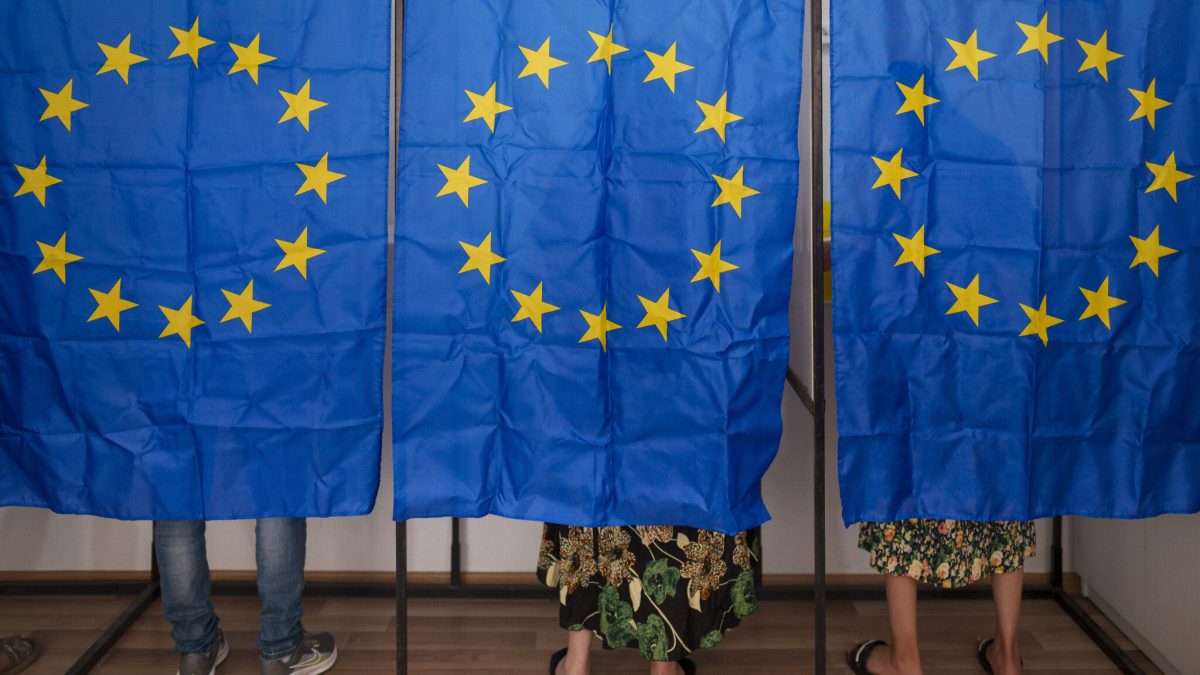European People’s Party strongest political force in the European Parliament


People vote in European and local elections in Baleni, Romania, Sunday, June 9, 2024. Voters across the European Union are going to the polls on the final day of voting for the European parliamentary elections to choose their representatives for the next five-year term. (AP Photo/Vadim Ghirda)
Written by David McAllister, MEP, IDU Vice Chairman
The European Union elections have confirmed the European People’s Party (EPP) as the strongest political force in the European Parliament. For the next legislative term, it is our responsibility to ensure that the European Union is taking the right path into the future.
We will now start to negotiate the key legislative frameworks for the next five years. There is a wide range of crucial topics that we need to deliver on for European citizens. Besides defence and security, economic competitiveness, public health, and social cohesion, migration remains a critical challenge that requires an effective and swift European solution.
The EU’s Pact on Asylum and Migration, which the European Parliament approved on 10 April 2024, was a vital and long-overdue step towards a comprehensive and functioning Common European Asylum System. It introduces a holistic approach to the management of migration and asylum while upholding the principle of solidarity and fair burden-sharing of responsibility between Member States.
As EPP, our mandate for this upcoming term is to drive forward an impactful and coherent solution to the migration challenge. Our approach remains balanced: it upholds our European values and core principles by protecting vulnerable persons, controlling borders, and stopping dangerous journeys organized by smugglers. The European People’s Party is ready to advance a comprehensive policy based on five points:
- A Strong European border and coast guard
The European external borders must be protected – not only by Member States, but also by strengthening the border protection agency Frontex. To achieve this, we must triple its staff to 30,000. Furthermore, Frontex’s budget needs to be increased to purchase modern equipment and to enable its operations in third countries. It is necessary that the agency has more implementing powers in the future.
By strengthening Frontex, the Member States’ preparedness at the borders as well as Frontex reaction capability can be greatly enhanced to safeguard the effective protection of our borders.
- Comprehensive Partnerships
Closer and more constructive partnerships with third countries must become a key component in stopping illegal migration to the European Union. Our partners can assist us in our fight against human trafficking, support refugees, and host communities in regions of origin or along the route. In order to build credible and lasting partnerships, the bedrock of each agreement must be strong political and economic ties as well as the respect of international law. The EU must empower its partners by fostering good governance, economic opportunities, education and social development, and creating an environment conducive for public and private investment. This creates a win-win situation for the EU as it simultaneously helps tackle the root causes of migration.
It is crucial that we develop partner-specific approaches within our cooperation frameworks. This can include emergency transit mechanisms, 1:1 resettlements, or route-based approaches depending on the partner we are cooperating with. These approaches must be permanently optimized.
- Fighting organized crime
The exploitation of vulnerable people by smugglers, who are solely driven by greed and self-enrichment, must stop. We need strong international and European legal frameworks to criminalize these actions. Dissuasive penalties and the freezing of assets must be expanded. Furthermore, the supply chains and logistics of smugglers must be effectively interrupted to undermine their business model. This can be done by systematically disabling the recuperated boats.
Moreover, the European Union Agency for Law Enforcement Cooperation (Europol) must play a stronger role in tackling migration by supporting data analysis, intelligence gathering, and by addressing digital aspects of smuggling.
In coordination with Frontex, Europol should create intelligence sharing, information structures, and liaison networks in third countries. This will provide enhanced situational awareness, early warning, and actionable intelligence throughout the complete criminal chain.
- An effective Return Policy
Giving protection to those in need also requires us to systemically return those who are not in need of international protection. The return process is a crucial element of a European-wide response to managing illegal migration. Swift returns not only limit the pressure on Member States’ asylum systems, but they also reduce the incentives for those seeking to enter the European Union illegally.
The European Union is not using its collective leverage, as it should, to enforce returns. That is why both internal and external aspects of return need to be reinforced. The current legal framework is not fit for purpose; the internal procedural aspects are ineffective. Amending existing laws is thus indispensable.
- Strong borders
The instrumentalization of migrants as hybrid threats has unfortunately become a viable policy option for the adversaries of the European Union, who seek to destabilize us. Thus, national capabilities must be reinforced. This means that the EU has to set up physical infrastructure and advanced means of surveillance. We cannot allow hybrid attacks to threaten the security of our borders and our citizens. To be properly prepared, we must adjust the EU’s legal framework and allow for a comprehensive and strong response to the use of migrants and refugees as instruments of destabilization.
If we conduct our migration policy along these five key points, our guiding principles of humanity and order can be preserved, while guaranteeing stronger control over migration in accordance with international law and in respect of fundamental human rights.